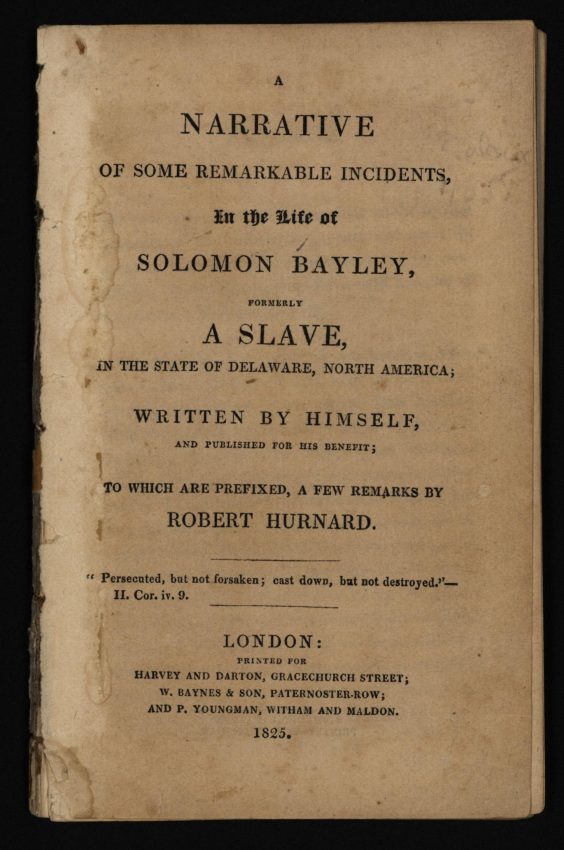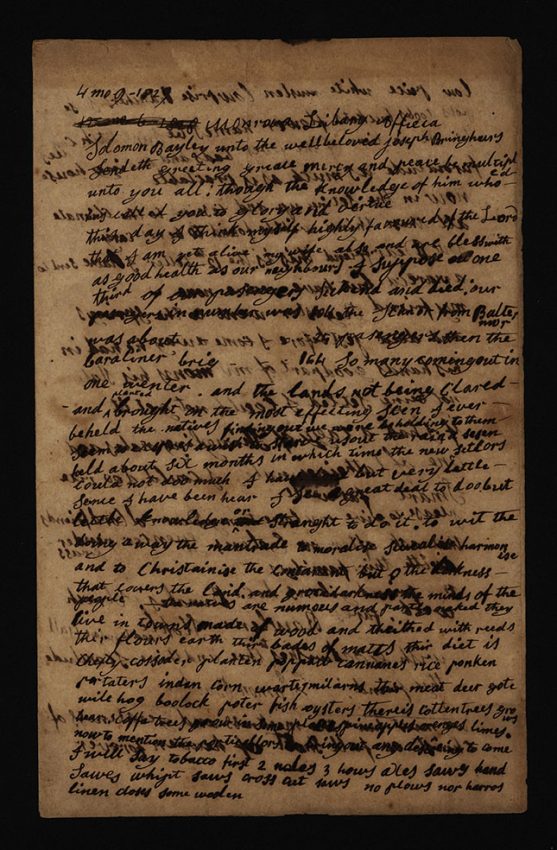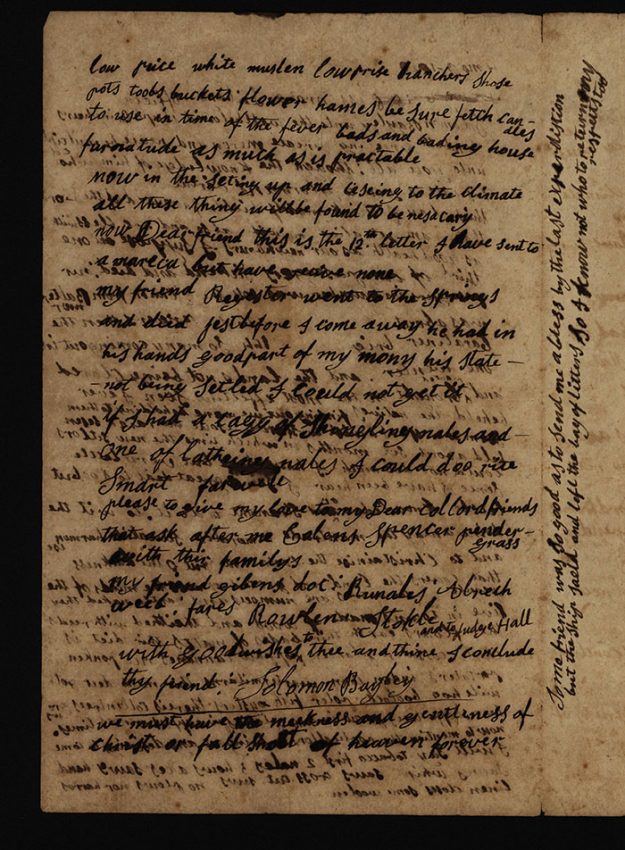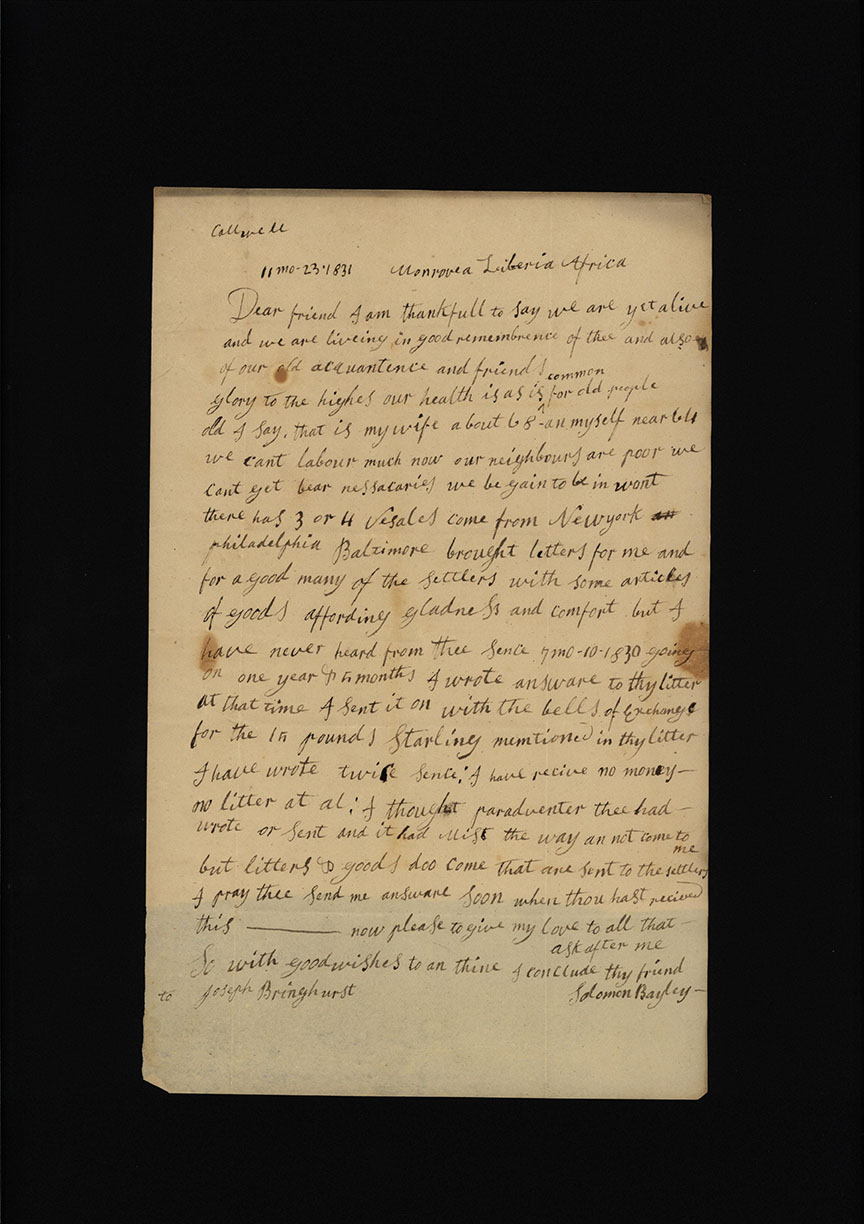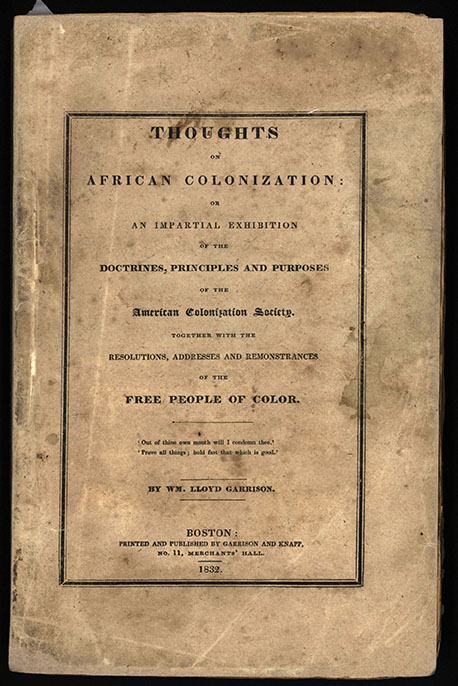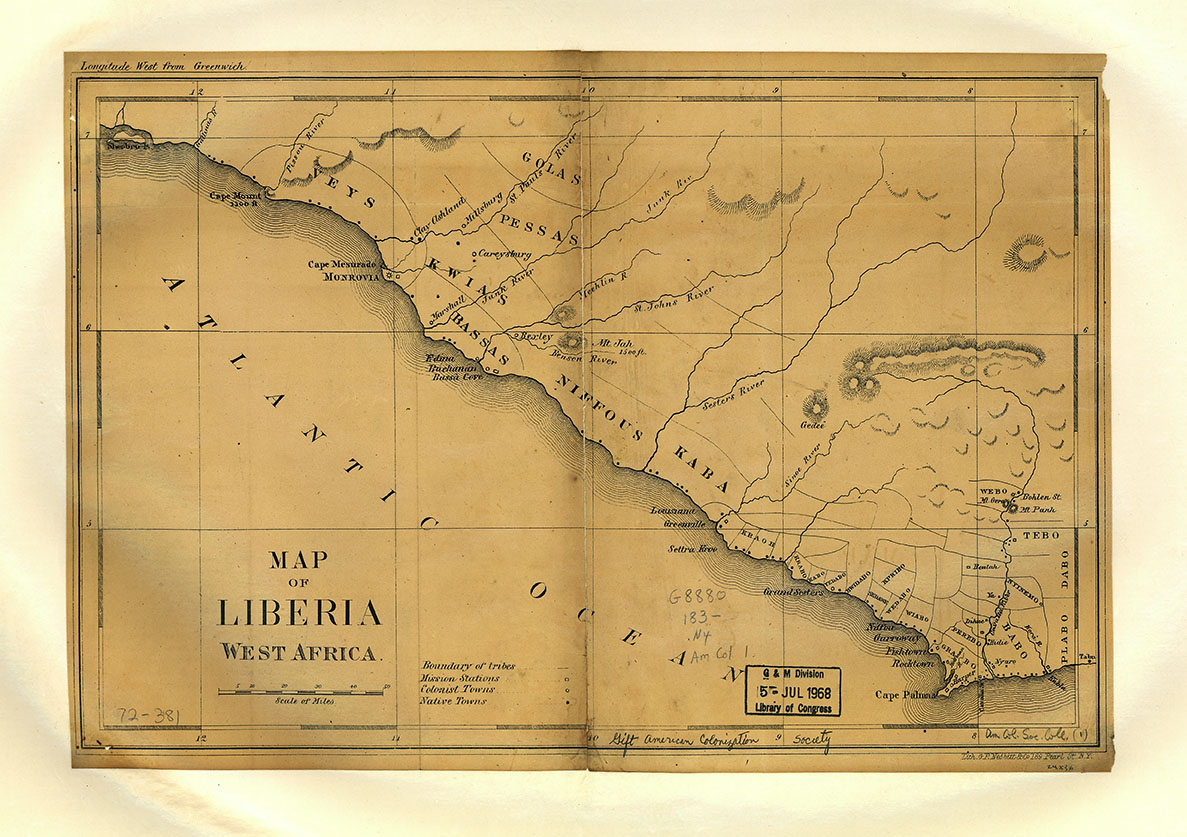In 1825, Bayley authored A Narrative of some Remarkable Incidents in the Life of Solomon Bayley. The book describes his enslavement eventual liberation, along with that of his family members. The story's central chain of events begins when their enslaver sends Bayley and his family from Delaware and sells them in Virginia, in violation of Delaware state law. Bayley sues his enslaver, seeking freedom for himself and his family. However, prior to the final court hearing, Bayley’s enslaver has him kidnapped and imprisoned. Bayley escapes and eventually purchases freedom for himself and his wife and children. After slavery, he worked as a farmer and joined the Methodist church and ministry. Despite being nominally free, he and his wife emigrated to Liberia in 1831 to escape racial oppression and the constant threat of being kidnapped and re-enslaved.
Bayley's letters to Joseph Bringhurst
Solomon Bayley was an acquaintance of the Bringhursts, a Quaker family that exercised a great influence on the social, religious and cultural life of the Wilmington area during the nineteenth century. After emigrating to Africa, Bayley corresponded by letter with Dr. Joseph Bringhurst, Jr. (b.1767 - d.1834) a physician who was also appointed first Postmaster of Wilmington. Bayley's letters to Bringhurst reflect the former's time as a freedman living in Liberia with his wife, probably in partnership with the American Colonization Society. Bayley's exchanges with Bringhurst include letters, lists delineating what items he wanted to purchase, and inventories of purchased goods sent from Liberia. The letters also describe difficulties the settlers faced as they sought to establish themselves in their new homeland. For example in one letter Bayley recounts being accosted by a military officer to be made an active part of a battle, an incident he narrowly escaped on the basis of his pacifist, Christian beliefs. The letters also describe some of his experiences as a slave, including his being sent away from his wife and first-born child.
Solomon Bayley. Letters from Liberia, 1830-1838. Shipley-Bringhurst-Hargraves Family papers
Garrison's Thoughts on African Colonization
William Lloyd Garrison (1805-1879) joined the abolitionist movement at the age of 25, and was briefly associated with the American Colonization Society (ACS). The group was founded in 1816 by a group of American political leaders. In 1820 the ACS organized the west African colony of Liberia and began sending free African Americans to live there. Although initially the organization seemed to promote the manumission of slaves, Garrison came to realize that the number of ACS members who opposed slavery was considerably small. Most, in fact, had no interest in freeing enslaved people but strove to remove free blacks from the United States as a means of helping to preserve the institution of slavery by eliminating interference from the free black population. In Thoughts on African Colonization Garrison declares that free blacks are Americans, and that removing them from the US would do nothing to address the problem of slavery.
This map from the 1830s shows boundaries of the region's ethnic groups, mission stations, colonist towns, and native towns.

